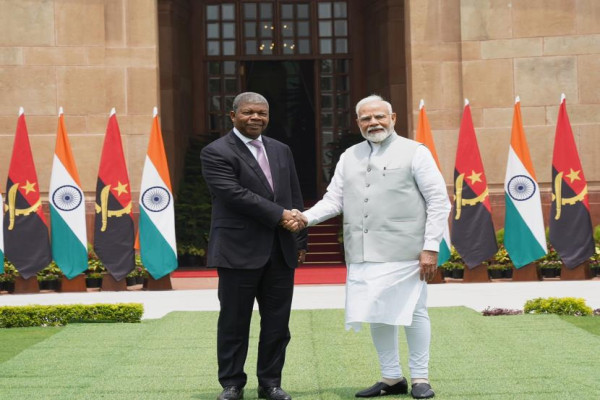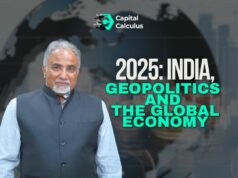Two key outcomes from the visit of Angola’s President Joao Manuel Lourenco to Delhl: As Chair of the African Union, Lourenço expressed interest in working with India to revive the India-Africa Forum Summit, with both sides agreeing to coordinate dates and agendas for the much-anticipated fourth edition.
The other was the announcement of a $200 million Indian line of credit to help Angola modernise its armed forces. Angola can procure critical defence equipment and infrastructure, especially from Indian public and private sector companies. Angola is also seeking to source transport vehicles, ammunition, and other assets.
At a briefing by the External Affairs Ministry, senior diplomat Dammu Ravi confirmed that Angola has expressed interest in Indian support for the overhaul and servicing of its existing Russian-origin platforms, including Su-30 fighter jets.
He also said that “Defence cooperation is expected to expand into capacity-building programs, with training and technical assistance as core elements.”
PM Modi has offered tailored training modules in counter-terrorism and cyber security, which, according to Dammu Ravi, could form part of a broader, long-term defence engagement.
Fight Against Terrorism
Earlier in the day, President Lourenco joined Prime Minister Modi in condemning the Pahalgam attack and its cross-border ramifications. Ravi said that although an official statement from the African Union is still awaited, Angola’s condemnation of the attacks in its capacity as AU Chair is significant, both diplomatically and symbolically.
Food and Energy Security
Angola’s quest for agricultural revival following decades of civil conflict formed a core part of the dialogue. Ravi noted that Angola is keen on developing self-sufficiency in food production, and India is prepared to support this transformation.
Some key initiatives include supply of agricultural machinery, such as tractors and irrigation systems; technology transfer for improved crop yields; exploration of long-term land leasing by Indian agribusinesses to grow food crops in Angola.
He mentioned that millets, in particular, were discussed as a viable and sustainable crop. Given Angola’s vast de-mined and cultivable land, the potential for Indian investment and partnership in agriculture is substantial.
On energy, Ravi highlighted India’s continued interest in Angola as a major oil supplier, while noting that country’s recent accession to the International Solar Alliance (ISA)—a move expected to advance clean energy cooperation and solar project development.
Space Cooperation, Digital Public Infrastructure
Space cooperation is an exciting area of interest. Angola, currently operating a satellite control centre with French assistance, is looking to partner with India for low-cost satellite solutions and technology transfer.
PM Modi has offered support through ISRO’s expertise in satellite building, launch services, and mission management.
India’s pioneering model of Digital Public Infrastructure (DPI) was another topic of interest. The MEA secretary explained that Angola, while new to this area, is exploring ways to adopt digital systems for governance, payments, and service delivery.
“The two countries are expected to work together on capacity building and software infrastructure, tailored to Angola’s needs,” he added.
Three key MoUs were signed during the visit, including: Agricultural development and cooperation; Cultural exchange, including a Youth Exchange Program to promote people-to-people ties; Traditional medicine, with India offering to support local production of Ayurvedic and pharmaceutical products.
Ravi noted that Angola requested Indian assistance in healthcare delivery, including support for new hospitals, training of medical personnel, and provision of vaccines and medicines.
India is exploring opportunities to send doctors and paramedics, and possibly establish pharmaceutical manufacturing units in Angola.
Global South
The visiting leader praised India’s growing global leadership and supported New Delhi’s call for reforms in the UN Security Council. Ravi confirmed that both leaders discussed the need for the UN to reflect contemporary geopolitical realities, including greater representation for African nations and India.





